Remodeling vs Renovation: What’s The Difference?
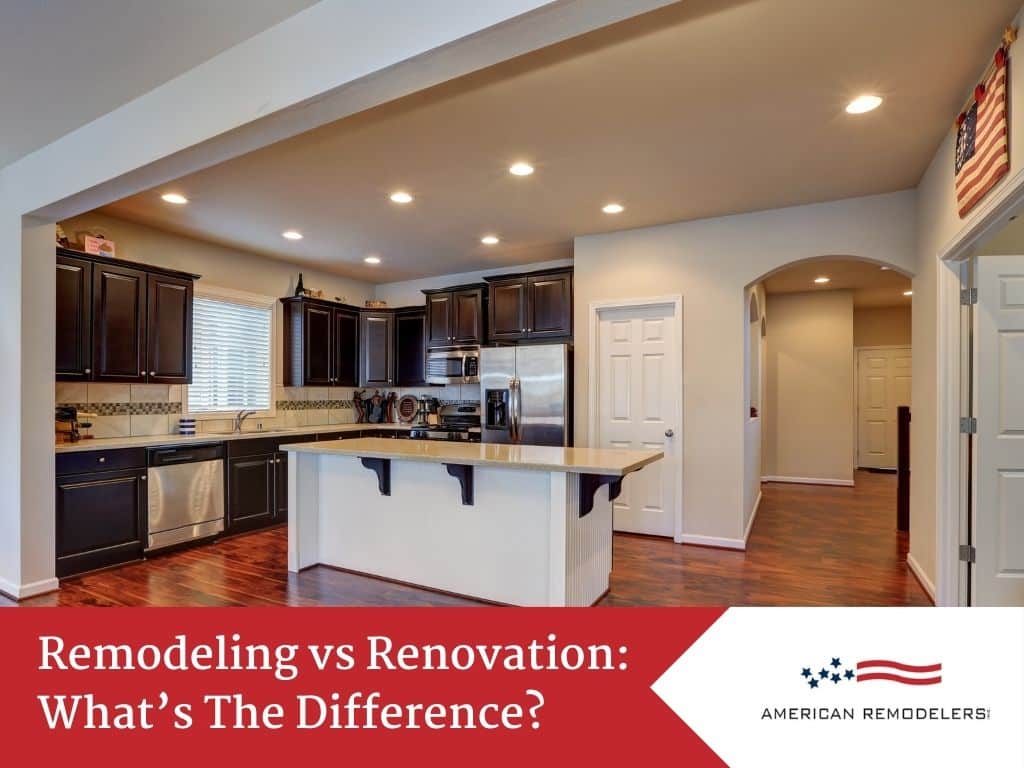
When it comes to improving your home, the terms “remodeling” and “renovation” are often used interchangeably. However, understanding the difference between these two processes can have a significant impact on your project’s outcome and cost. Whether you’re looking to transform an aging kitchen into a modern culinary oasis or breathe new life into a classic, historical facade, this blog aims to help you make an informed decision for your home improvement journey.
Throughout this article, we’ll delve into the key differences between remodeling and renovation, providing you with the insights needed to embark on your home improvement journey with clarity and confidence.
Defining Remodeling
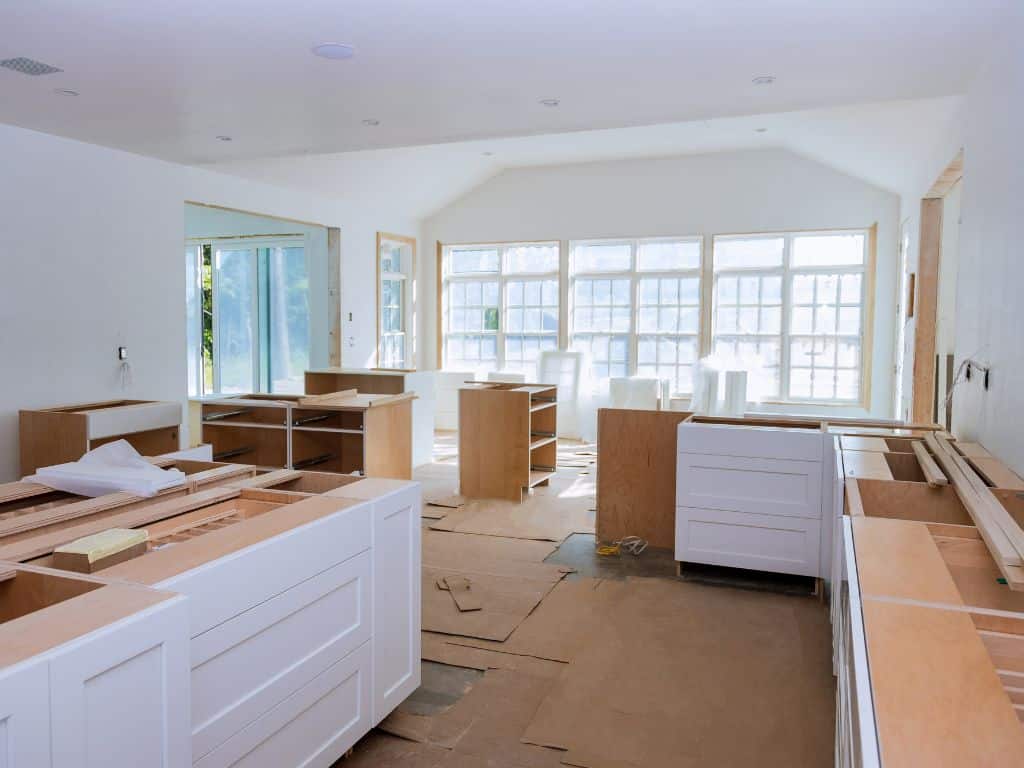
In home improvement, remodeling refers to projects that involve altering a space’s existing structure or layout. This process can result in significant transformations, fundamentally changing a room’s look, function, or size. For example, a kitchen remodel might entail tearing down a wall to create an open floor plan, adding an island to increase workspace and seating, or reconfiguring the layout to enhance functionality and flow.
Common remodeling projects include kitchen remodels, bathroom remodels, basement conversions, and room additions. These projects aim to improve both the utility and aesthetic appeal of a space. While they often require a substantial investment, the potential return in terms of increased property value and improved quality of life can be significant. Cambria USA shared, “When considering a layout change, it’s important to enjoy being in the space and consider the cost and potential issues.”
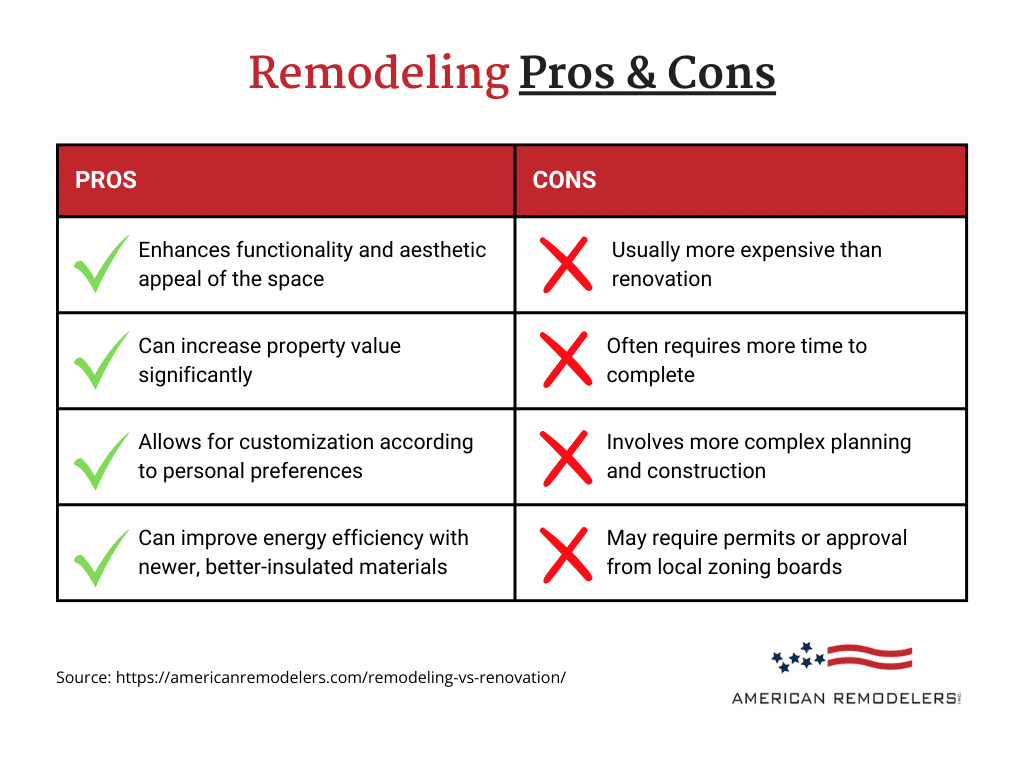
Here’s a quick glance at some of the pros and cons associated with remodeling:
Pros of Remodeling:
- Enhances functionality and aesthetic appeal of the space
- Can increase property value significantly
- Allows for customization according to personal preferences
- Can improve energy efficiency with newer, better-insulated materials
Cons of Remodeling:
- Usually more expensive than renovation
- Often requires more time to complete
- Involves more complex planning and construction
- May require permits or approval from local zoning boards
Understanding Renovation
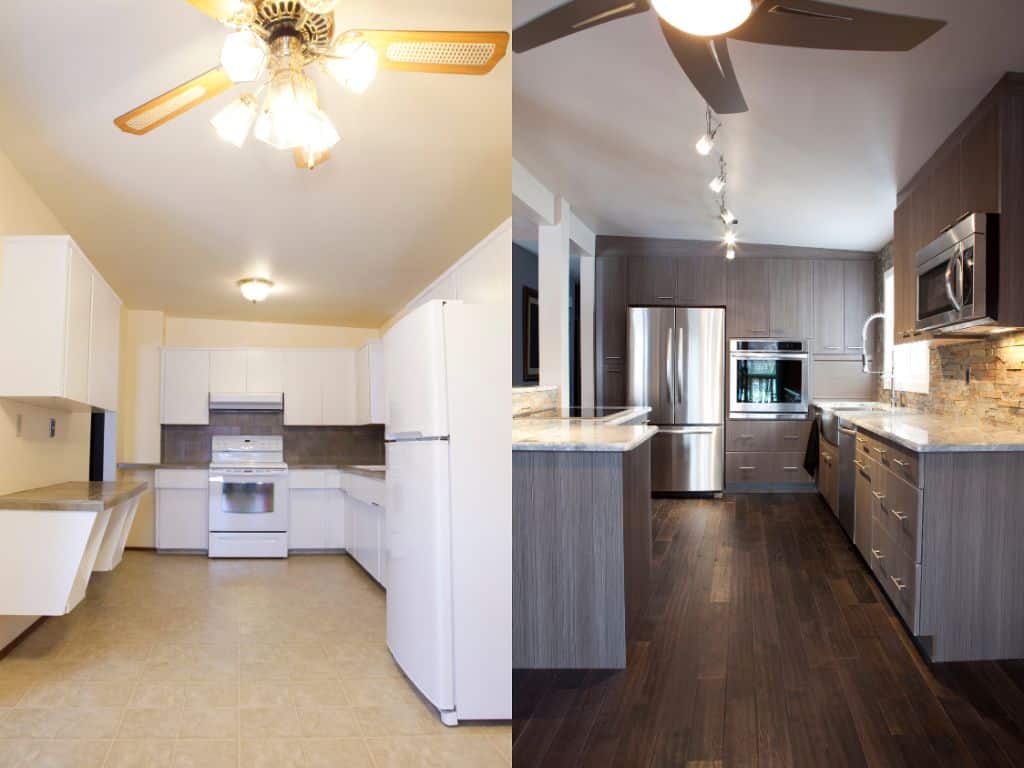
Renovation, unlike remodeling, focuses primarily on restoring a space to a good state of repair without changing its structure or layout. In essence, renovation is about making an existing space look and function better without any significant alterations. It often involves tasks like repairing damaged areas, repainting walls, replacing old fixtures, or refreshing the flooring. Ensuring that a renovation is done properly requires careful planning and execution. According to Better Homes and Gardens, “Without preparation, the home renovation process can be full of disappointments because, unlike building a new house, you aren’t starting with a blank slate.”
Typical renovation projects encompass tasks like repainting rooms, replacing old appliances or fixtures in the kitchen or bathroom, restoring original features in historic homes, or updating a home’s exterior with new siding or a fresh coat of paint.
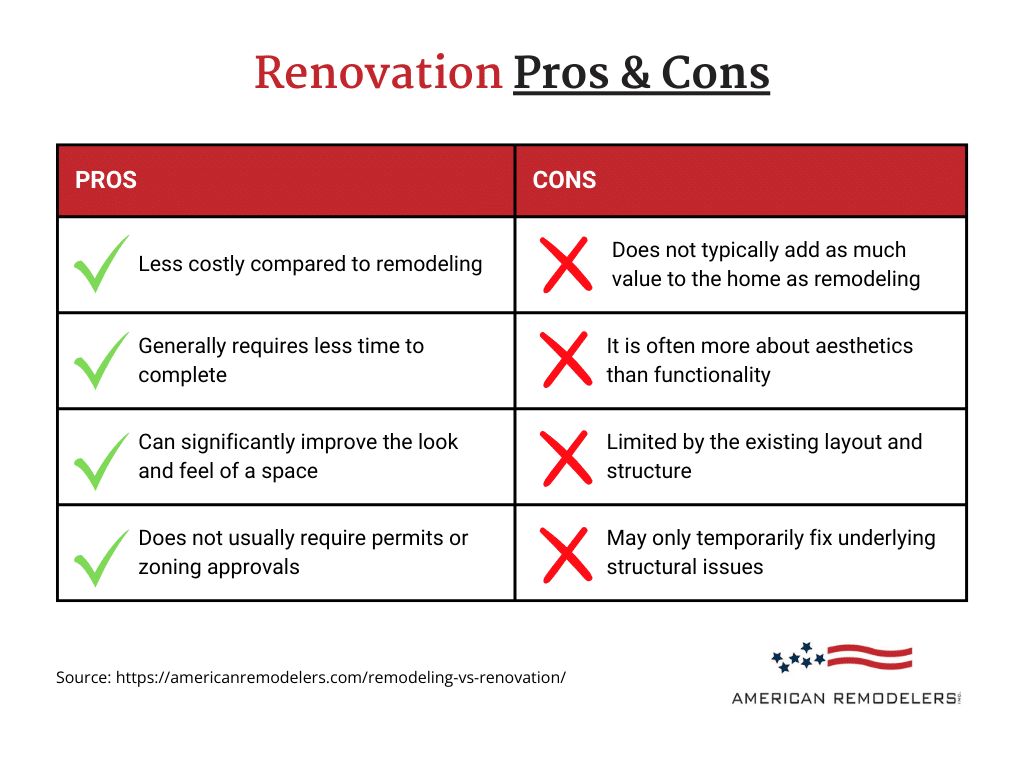
Here’s a snapshot of some of the advantages and drawbacks associated with renovation:
Pros of Renovation:
- Less costly compared to remodeling
- Generally requires less time to complete
- Can significantly improve the look and feel of a space
- Does not usually require permits or zoning approvals
Cons of Renovation:
- Does not typically add as much value to the home as remodeling
- It is often more about aesthetics than functionality
- Limited by the existing layout and structure
- May only temporarily fix underlying structural issues
Key Differences Between Remodeling and Renovation

While both remodeling and renovation provide a means to improve your living space, there are distinct differences between the two. These differences mainly center around the scope of work, cost, time taken, value added to the property, and the level of planning and construction required.
- Scope of Work: Remodeling involves changing the structure or layout of a space, while renovation is about restoring or repairing an existing structure without major alterations.
- Cost: Remodeling usually costs more than renovation due to the complexity of the work involved.
- Time: Remodeling often takes longer to complete than renovation.
- Value Addition: Remodeling can significantly increase property value, whereas renovation primarily improves the aesthetics and may not add as much value.
- Planning and Construction: Remodeling involves more complex planning and construction compared to renovation.
Factors Influencing the Choice between Remodeling and Renovation

Choosing between remodeling and renovation depends on several factors:
- Budget: If you are working with a tight budget, renovation might be a more suitable option as it tends to be less expensive.
- Timeframe: If you need the work completed quickly, renovation usually takes less time than remodeling.
- Purpose: If the primary purpose is to increase property value or make significant changes to the layout or functionality of the space, remodeling might be the best choice. On the other hand, if the focus is on updating the aesthetics or making minor improvements, renovation could suit your needs better.
- Existing Structure: For historic homes or buildings, renovation is often preferred to preserve the original features. Conversely, for structures that need a lot of work or modernizing, remodeling might be more appropriate.
Remember, the right choice will depend on your specific circumstances, preferences, and long-term plans for the property.
Choosing the Right Approach
Choosing the right approach, whether remodeling or renovation, requires careful consideration of your unique needs, budget, and long-term plans for the property. When assessing your needs, start by outlining your vision for the space – is it a dramatic transformation or a subtle enhancement? Put your budget under the microscope and understand what you can comfortably afford. Take into account the timeframe you have for project completion and whether your focus is more on updating aesthetics or functionality.
Engaging a trusted home improvement expert like American Remodelers can make a world of difference in this process. They can offer invaluable insights, helping you weigh the advantages and drawbacks of each method in your specific context, ultimately guiding you toward the most appropriate and beneficial decision.
“We have used and recommended Ryan and American Remodelers on several projects. His team is very responsive, and Ryan is always available when needed. American Remodelers is the right choice if you want to get the job done with good quality products and service.””We have used and recommended Ryan and American Remodelers on several projects. His team is very responsive, and Ryan is always available when needed. American Remodelers is the right choice if you want to get the job done with good quality products and service.”
Iris Gravenius
Conclusion
In conclusion, understanding the key differences between remodeling and renovation can guide your home improvement decisions. Remember, remodeling involves substantial changes to the structure or layout of your space and can significantly increase property value, but it often requires a larger investment in terms of time and money. Renovation, on the other hand, primarily focuses on repairing and refreshing an existing space without major alterations, making it generally less costly and quicker. Whichever path you choose, the most important thing is to make an informed decision that aligns with your vision, budget, and long-term plans for your home.
Ready to embark on your home transformation journey? Contact American Remodelers online today or call (650) 307 3221 to schedule a free consultation.




